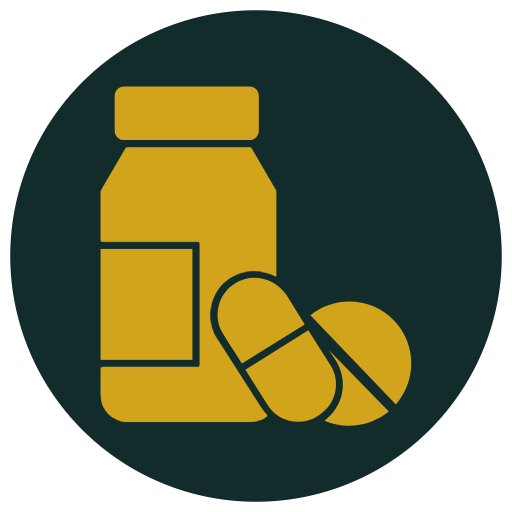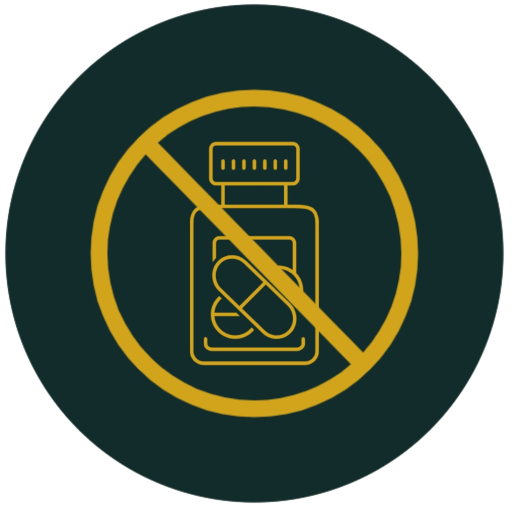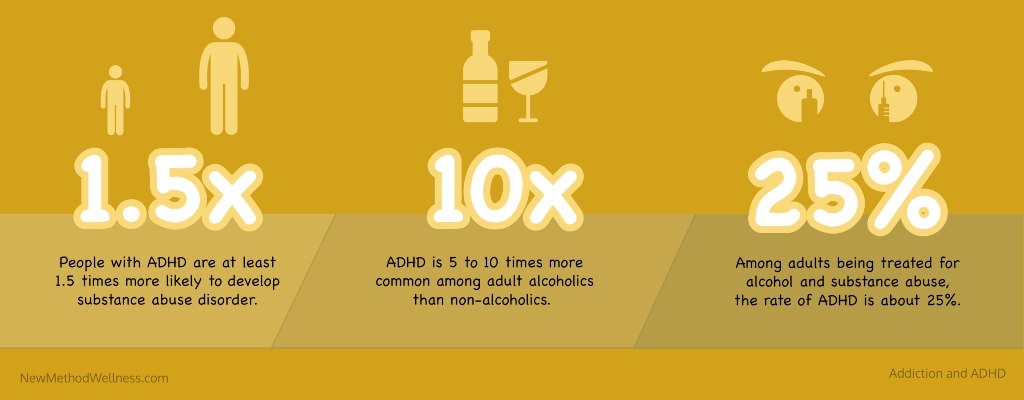ADHD stands for Attention Deficit Hyperactivity Disorder. It is a behavioral disorder caused by inattention, hyperactivity, and impulsivity. Contrary to the name, people with ADHD don’t have a deficit of attention and are often not hyperactive. Many do not consider it a disorder but a personality trait (though we use ADHD as the formal medical term).
People with ADHD often have trouble regulating their ability to focus. They can focus on one thing for a long time and be unaware of their surroundings, yet impulsive and distracted. That causes problems in their day-to-day lives and often in school and work as they cannot complete tasks or complete them as fast or as productive as their peers.
ADHD impacts 5% of children in the United States, meaning that over 12 million affected children nationwide. In the UK alone, around 4 million children have an ADHD diagnosis.
There are many causes for ADHD, some of which are hereditary. Others include environment and nutrition. There’s also a genetic link too. Children who have parents with ADHD are almost twice as likely to have ADHD than those whose parents are neurotypical. The symptoms of ADHD result from neurotransmitters in the brain becoming unregulated, affecting and altering brain chemistry.
Some people believe the disorder is more related to brain anatomy than chemistry, with fewer than normal connections between parts of the brain being responsible for the effects of ADHD on individuals, even if they function as the neurotypical brain. It’s hard to tell which is present in the individual, which is why some medications produce more chemicals in the brain, while others regulate the transfer of these chemicals after they’ve appeared.

Medicated treatment for ADHD proves to be one of the most effective of any disorder. Its ability to help those with ADHD finish tasks, stay organized, and avoid distractions is vital.
Many different drugs are available for treating ADHD, including stimulants and non-stimulants, and other medications that regulate neurotransmitters in the brain. Yet, stimulants are the most popular form of treatment. As you’d expect, stimulants increase dopamine levels in the brain, which improves emotional regulation and focus. These act quicker and don’t last as long, but they also stimulate other parts of the body, such as increased heart rate.
Non-stimulants target norepinephrine and get prescribed to those with health issues such as heart defects that could cause a heart attack or those for whom stimulant medication isn’t effective. They take longer to work and have a lower chance of success but are perfect for anyone unable to take stimulant medication.

Non-medicated treatment is a type of treatment that does not involve prescription medication. This non-medicinal approach to treating behavioral health problems is often referred to as psychotherapy and includes counseling, psychotherapy, and support groups.
Non-medicated treatment for ADHD comes in the form of behavior modification. It’s less effective as the child or young adult leaves school and works separately, though it can still help to manage symptoms as an adult. The key is to recognize which elements of ADHD are present in a person’s life and change those things. It’s often referred to as “self-management,” and is often used in conjunction with a medical professional to help you control your ADHD symptoms.
Addiction is a pathological relationship with any substance or behavior which causes damage to an individual’s life. Yet, the particular substance or behavior that causes addiction is often irrelevant. Addiction can occur with or without drugs and alcohol, but the addiction itself doesn’t change.
Addiction generally involves a combination of physiological changes (involving brain chemistry) and behavioral changes (feeling compelled to engage in the behavior despite negative consequences). Addiction affects our brain, our bodies and alters our lifestyle. It’s believed that people with addictive personalities are more likely to suffer from other disorders such as autism, schizophrenia, bipolar disorder, OCD, and of course, ADHD.
The key to this is the fundamental principles of the complementary relationship between the two. This relationship manifests itself differently in every individual, in particular those with ADHD.
So we need to break this down further and look at the two main types of addiction and how they relate to ADHD.
Addiction comes in many forms, but the two major types are chemical addiction and behavioral addiction. Chemical addiction involves the use of a drug such as heroin. The brain controls chemicals that release into our body. These impact behavior and general emotions, often causing mood swings, impulsive behavior, or even life-threatening behaviors. These chemicals have a powerful effect on us, and it is the cause of chemical addictions.
In addicts with ADHD, these chemicals are at their highest level in any individual. That’s because ADHD caused irregularities in the first place. As a result, they are more impulsive and unplanned in their behavior.
There is another type of addiction that isn’t as obvious, called behavioral addiction. People with behavioral addiction can often stop using a substance with ease but don’t want to. Yet, they crave a behavior that isn’t tangible. Examples include gambling, pornography, or playing video games.
They don’t rely on the substance for survival, so it’s not a physical addiction. Rather, addicts crave the behavior and feel compelled to engage in that behavior. That’s despite any negative consequences or pain it causes them or others around them.
For those with ADHD, they may never have touched drugs in their life. But the constant craving for a boost of norepinephrine and dopamine causes a learned behavior that, once an action satisfies that need, the action becomes habitual. For many, this action intensifies as the body becomes more immune to the action.

Chemical addiction, such as those addicted to illegal drugs, is the body’s instinctive reaction to seeing the drug as a positive. But what about behavioral addiction? For that, we need to delve deeper.
We mentioned above that some people never become addicted to drugs. Instead, they become addicted to ideas, actions, and other non-tangible practices. For these, regulated medication can suppress the addiction on a chemical level. Thus, sensory-seeking isn’t necessary for the dopamine fix. But if the medication wears off, the addiction is still there.
If the addiction is chronic to the point it’s ingrained, it’s become instinctive. Then many will act upon these impulses and cravings even when medicated. The explanation for this is psychological and engrained in trauma, whether self-inflicted or by others.
At this point, comorbidities come into play. Examples include Depression, Autism Spectrum Condition, Obsessive Compulsive Disorder, Bipolar Disorder, and Borderline Personality Disorder.
These are so unique to every individual with ADHD that it’s most often a collaboration of the comorbidities that solidifies the addiction, rather than one itself. And, those who show no signs of ADHD can, of course, have addictions to any of the above. But studies show they are three times less likely to show addiction.
In these cases, addiction is often a psychological comfort, a craving for the pleasure senses. Trauma-triggered behavioral actions tend to meet a desire to come to terms with the trauma, which in itself is pleasurable.
As we have established above about the different types of addictions, the two aren’t related in obvious ways. But because we are talking about ADHD, addiction is often a secondary condition caused by the symptoms of ADHD.
The number one reason people with ADHD tend to develop behavioral addictions is that they crave sensory stimulation. The controls and structures in their lives usually keep them in check. But they disappear in those with ADHD. So anything that satisfies that need becomes an addiction.
It’s not the drug itself causing the addiction, nor the behavior. It’s a need, but not a physical need such as food, water, or sleep. Rather, it’s the dopamine rush and other pleasure chemicals released in our brain. This rush occurs when we engage in action so pleasurable to use that it becomes compulsive.
Treating addiction in those with ADHD depends on whether the ADHD diagnosis exists. Let’s take a look at some differences based on what we already know. For those suspected of having ADHD but don’t have a diagnosis, a diagnosis with treatment may help the addict come to terms with their addiction. Moving on from there, we look at the other options for those who already have a diagnosis.
Many of these come down to the addiction itself. If it’s chemical, then addressing the addiction can often help remove it. If it’s behavioral, the treatment is often about introducing a schedule and structure. In behavioral addiction, the addict has a program tailored to their existing state. This program accommodates the best requirements for their addiction.
Behavioral addiction tends to be more developed and more challenging to break than chemical addictions. Taming behavioral addictions may come down to using the correct medication and therapy.
For those who have ADHD, it’s important not to try to override ADHD with new behavior. There are a limited number of ways to affect our actions and habits, but we need to be aware of how we modify our lives. That’s because, without the right approach and understanding, you can do more damage than good.
One way to break the addiction is by changing your environment and how you engage with the addiction. It is particularly relevant for behavioral addictions. These are your behaviors that occur despite the negative consequences or pain that come with them.
If you’re addicted to video games, for example, you could seek out a new environment. Cognitive Behavioral Therapy and addiction therapy can help transfer sensory seeking into a healthier pathway. Examples of this include physical exercise or meditation.
As we know, people with ADHD and addiction are some of the brightest, most intelligent minds capable of thinking outside the box and seeing the world in ways others cannot comprehend.
For all the struggles and plights, treating an addiction enriches the lives of those who suffer. Furthermore, the treatment, in turn, enriches the lives of loved ones who support them every day.
If you’re in the California area and you’d like yourself or a loved one to talk to us, then do not hesitate to get in touch. Let us see how we can turn your life around for the better.
Handpicked by Dr. Phil, New Method Wellness is a premier dual diagnosis addiction treatment center dually accredited by The Joint Commission. It has been singled out as one of the best drug and alcohol rehab centers in America, offering a unique 3:1 staff-to-client ratio that pairs every client with two therapists instead of one.
At New Method Wellness, we add another dimension to dual diagnosis treatment, and that is the integration of holistic therapy, such as massage/acupuncture therapy, equine therapy, and art therapy. As addiction therapists and substance abuse counselors work with clients to treat the substance use disorder and the co-occurring illness associated with it, holistic therapy adds meaning to life after treatment and sustains long-term recovery. Our 3:1 staff-to-client ratio ensures client success after treatment, as evidenced by our Etended Aftercare program.
For more information about New Method Wellness’s treatment programs, call (866) 951-1824
Deanna Crosby is a Licensed Marriage and Family Therapist (LMFT) with over 20 years of experience working with clients in recovery. Her expertise has catapulted her into the spotlight. Featured on several episodes of the Dr. Phil Show as a behavioral health expert, DeAnna is a routine contributor for NBC News, The Huffington Post, Elle Magazine, MSN, Fox News, Yahoo, Glamour, Today, and several other prominent media outlets.
After receiving her bachelor’s degree from the University of California in Irvine, Crosby did postgraduate work at Centaur University where she graduated at the top of her class with a CAADAC certification in Centaur’s chemical dependency program. Following her time at Centaur, Crosby received her Master of Counseling Psychology degree from Pacifica Graduate Institute, where she also attained a Doctoral Degree in Depth Psychology.
Accredited by:
"*" indicates required fields
New Method Wellness
We firmly believe that the internet should be available and accessible to anyone, and are committed to providing a website that is accessible to the widest possible audience, regardless of circumstance and ability.
To fulfill this, we aim to adhere as strictly as possible to the World Wide Web Consortium’s (W3C) Web Content Accessibility Guidelines 2.1 (WCAG 2.1) at the AA level. These guidelines explain how to make web content accessible to people with a wide array of disabilities. Complying with those guidelines helps us ensure that the website is accessible to all people: blind people, people with motor impairments, visual impairment, cognitive disabilities, and more.
This website utilizes various technologies that are meant to make it as accessible as possible at all times. We utilize an accessibility interface that allows persons with specific disabilities to adjust the website’s UI (user interface) and design it to their personal needs.
Additionally, the website utilizes an AI-based application that runs in the background and optimizes its accessibility level constantly. This application remediates the website’s HTML, adapts Its functionality and behavior for screen-readers used by the blind users, and for keyboard functions used by individuals with motor impairments.
If you’ve found a malfunction or have ideas for improvement, we’ll be happy to hear from you. You can reach out to the website’s operators by using the following email juanita@newmethodwellness.com
Our website implements the ARIA attributes (Accessible Rich Internet Applications) technique, alongside various different behavioral changes, to ensure blind users visiting with screen-readers are able to read, comprehend, and enjoy the website’s functions. As soon as a user with a screen-reader enters your site, they immediately receive a prompt to enter the Screen-Reader Profile so they can browse and operate your site effectively. Here’s how our website covers some of the most important screen-reader requirements, alongside console screenshots of code examples:
Screen-reader optimization: we run a background process that learns the website’s components from top to bottom, to ensure ongoing compliance even when updating the website. In this process, we provide screen-readers with meaningful data using the ARIA set of attributes. For example, we provide accurate form labels; descriptions for actionable icons (social media icons, search icons, cart icons, etc.); validation guidance for form inputs; element roles such as buttons, menus, modal dialogues (popups), and others. Additionally, the background process scans all of the website’s images and provides an accurate and meaningful image-object-recognition-based description as an ALT (alternate text) tag for images that are not described. It will also extract texts that are embedded within the image, using an OCR (optical character recognition) technology. To turn on screen-reader adjustments at any time, users need only to press the Alt+1 keyboard combination. Screen-reader users also get automatic announcements to turn the Screen-reader mode on as soon as they enter the website.
These adjustments are compatible with all popular screen readers, including JAWS and NVDA.
Keyboard navigation optimization: The background process also adjusts the website’s HTML, and adds various behaviors using JavaScript code to make the website operable by the keyboard. This includes the ability to navigate the website using the Tab and Shift+Tab keys, operate dropdowns with the arrow keys, close them with Esc, trigger buttons and links using the Enter key, navigate between radio and checkbox elements using the arrow keys, and fill them in with the Spacebar or Enter key.Additionally, keyboard users will find quick-navigation and content-skip menus, available at any time by clicking Alt+1, or as the first elements of the site while navigating with the keyboard. The background process also handles triggered popups by moving the keyboard focus towards them as soon as they appear, and not allow the focus drift outside of it.
Users can also use shortcuts such as “M” (menus), “H” (headings), “F” (forms), “B” (buttons), and “G” (graphics) to jump to specific elements.
We aim to support the widest array of browsers and assistive technologies as possible, so our users can choose the best fitting tools for them, with as few limitations as possible. Therefore, we have worked very hard to be able to support all major systems that comprise over 95% of the user market share including Google Chrome, Mozilla Firefox, Apple Safari, Opera and Microsoft Edge, JAWS and NVDA (screen readers), both for Windows and for MAC users.
Despite our very best efforts to allow anybody to adjust the website to their needs, there may still be pages or sections that are not fully accessible, are in the process of becoming accessible, or are lacking an adequate technological solution to make them accessible. Still, we are continually improving our accessibility, adding, updating and improving its options and features, and developing and adopting new technologies. All this is meant to reach the optimal level of accessibility, following technological advancements. For any assistance, please reach out to juanita@newmethodwellness.com
"*" indicates required fields
"*" indicates required fields